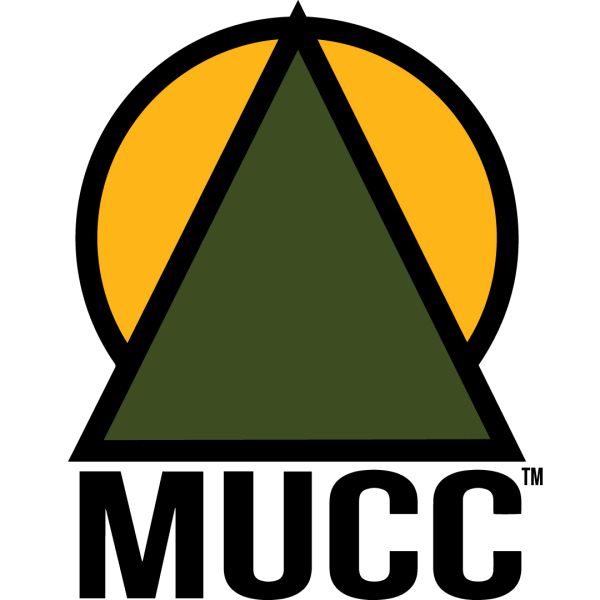NRC Bans Chocolate in Bear Bait
This from MUCC… Make sure to read all the proposals below, GW. Very ambitious!
A little over a year ago, Michigan’s bear hunting organizations asked the Natural Resources Commission to consider banning chocolate in bear bait to reduce the risk of harming non-target wildlife. Chocolate contains theobromine, which can be toxic to bears and other wildlife in sufficient quantities. Organizations including the Michigan Bear Hunters Association, the Michigan Hunting Dog Federation and the U.P. Bear Houndsmen Association sponsored a resolution supporting a restriction on chocolate in bear bait through the Michigan United Conservation Clubs policy process. At the MUCC Annual Convention in June, MUCC’s member delegates approved the resolution, as well as another resolution asking MUCC to educate hunters about the dangers of chocolate in bear bait. On Thursday, the Natural Resources Commission approved a wildlife conservation order banning the use of chocolate in bear bait.
The ban was adopted as part of the bear regulation update, scheduled every three years. The NRC also adopted new quotas, including an overall 19% increase in Lower Peninsula unit quotas, both increases and decreases in Upper Peninsula unit quotas, raising the maximum number of dogs allowed for hunting or training from six to eight, and increasing the nonresident license cap from 2% to 5%. The DNR’s bear forum, consisting of multiple conservation groups including MUCC and those listed above, met during the year to discuss the changes before the DNR recommended and the NRC adopted them.
This past Saturday, Michigan United Conservation Clubs also held its final Conservation Policy Meeting before June’s Annual Convention in Owosso. The meeting was the last chance for clubs or members to introduce policy resolutions to be considered and voted upon at the Annual Convention. Any MUCC member or affiliate club can introduce a resolution, which if adopted, becomes the policy that MUCC’s professional staff advocates, such as restricting chocolate in bear bait.
Combined with the two earlier Conservation Policy Meetings in September and December, this year’s proposed resolutions will include:
- Establish a sandhill crane hunting season
- Designate mourning dove as a game species
- Develop a short-term non-resident waterfowl license
- Create a pheasant release program for hunter recruitment
- Require hunters to wear a fall arrest system/full body harness when hunting from a treestand
- Reintroduce cisco (lake herring) in Saginaw Bay
- Establish a fisheries policy which includes angler input on research projects which would impact non-target species and angler access
- Oppose the sale or transfer of state-owned public land over 80 acres or including riparian access unless designated as surplus land under a transparent and open public process
- Oppose legislation which creates an unfunded mandate for the DNR resulting in a diversion of game and fish funds without a supplemental appropriation
- Restrict importation of cervid carcasses from other states to deboned meat, clean skullcap, finished taxidermy, etc., and increase fines for violation
- Reform captive cervid regulatory structure to prevent the spread of Chronic Wasting Disease (CWD)
- Remove suppressors from regulation under the National Firearms Act of 1934 and allow purchase under same process as the National Instant Background Check System
- Allow bear bait barrels on public land
- Allow a crossbow to be carried afield simultaneously with a firearm during the December firearm deer seasons
- Allow youth hunters on private land to hunt within 660 feet of a mentor hunter, provided there is uninterrupted electronic communication, the hunter is over 14 and has completed hunter safety and at least 20 hours of supervised hunting
- Calls on the Michigan DNR to make it a priority to acquire severed minerals where the State owns the surface only to protect and control the commercial use of public land; particularly underground minerals in State Parks and lands purchased with PR and Game and Fish Funds
- work with the U.S. Fish and Wildlife Service to reinstate the Public Resource Depredation Order on cormorants; and/or with our U.S. Representatives and U.S. Senators to come up with a law to reinstate cormorant control
These are only proposed resolutions at this point; they will not become MUCC policy unless approved at the Annual Convention by a 2/3 majority of voting delegates representing affiliate clubs and members if the resolution would change a law or regulation, or a simple majority if it wouldn’t.
Support Michigan United Conservation Clubs’ grassroots process to conserve our natural resources for future generations by making a donation at www.mucc.org/donate! Or, stop by the MUCC booth at the Ultimate Sport Show in Grand Rapids March 16-19 and purchase a 50/50 Conservation Jackpot ticket!



